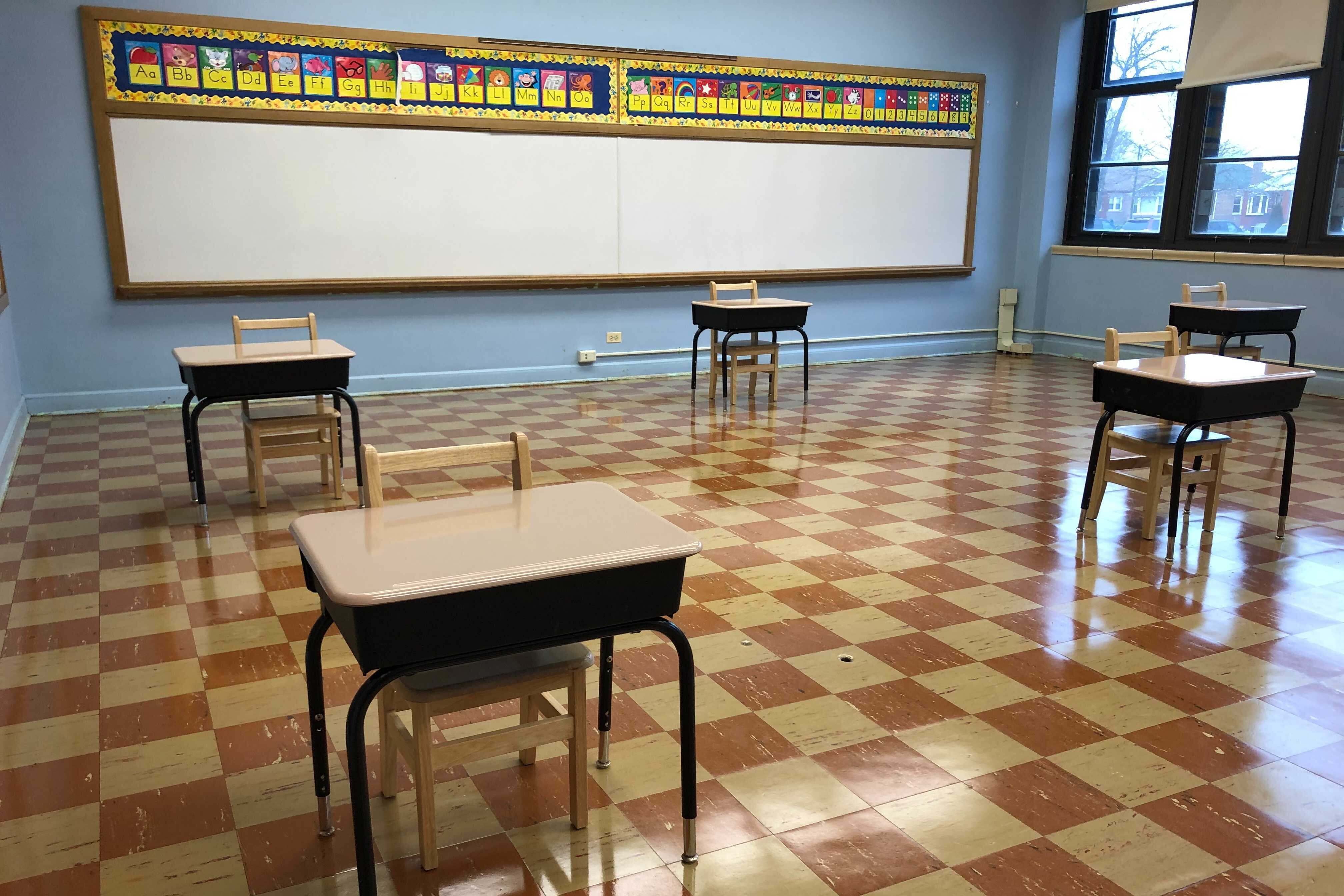Mayor Lori Lightfoot said Friday that Chicago plans to forge ahead with reopening prekindergarten through eighth grade classrooms Monday, even as the city failed to reach an agreement with its teachers union.
If the two sides don't come to a deal over the weekend, the district will expect teachers to report to work in person next week — likely setting the stage for a teacher strike.
District and union leaders said they have made substantial headway toward reaching an agreement this week, but it wasn’t enough to get a deal. The dispute has thrown Chicago’s second wave of reopening schools into disarray, thrusting families into uncertainty about what school will look like next week. Elementary school teachers, who were to set up their classrooms this week, instead continued to work remotely.
“Another day has passed, and the [Chicago Teachers Union] has not agreed to anything,” a visibly frustrated Lightfoot said Friday night. “We can get it done tonight, tomorrow, Sunday — but we need to get it done.”
Lightfoot said the district asked the union to put in writing issues on which the two sides have agreed in principle by 9 p.m. Friday, but it did not receive such a document. But the teachers union shot back on social media and in a statement, saying that it was the mayor who had “wrecked” a fledgling agreement Friday night.
“The educators in the room were close to reaching an agreement,” the union’s statement said. “The boss stepped in at the 11th hour and blew it to pieces.”
But the union also said it will stay at the bargaining table, noting it has a “willing partner” in the district’s negotiations team.
Last weekend, 61% of the union’s members voted against returning to campus in person — and to go on strike if the district moves to lock them out of their virtual classrooms. The district has said such a walkout, which would come 15 months after the union went on strike during the most recent contract talks, would be illegal. With no agreement within reach Tuesday night, the district suspended in-person learning for about 3,200 preschool and special education students who had returned to their classrooms Jan. 11.
Lightfoot said the district will take “further action” if educators do not report to work on Monday, but she declined to offer specifics or confirm the district intends to lock out educators and dock their pay.
“I will not speculate on what might happen when I am focused very intensely on getting a deal done,” she said.
Lightfoot acknowledged she and district CEO Janice Jackson have not attended the negotiations, saying they have to see progress to join the talks. Jackson said “thousands” of teachers have been coming into schools this week to set up their classrooms.
Back in December, about 70,000 students in kindergarten through eighth grade, or about a third of students in those grades, indicated they wanted to return to school buildings for a blend of in-person and virtual instruction. Based on student turnout during the first wave of reopening — only about 60% of students expected to return actually showed up — that number likely will be smaller.
District leaders said earlier this week that they presented to the union a comprehensive new proposal that could serve as the cornerstone of a deal. That includes doubling the frequency of COVID-19 testing for school-based staff to twice a month, offering surveillance testing for students learning in person, prioritizing vaccinations for educators and support staff in neighborhoods with the highest rates of the coronavirus, and suspending in-person learning should the positivity rate of school-based tests reach 3%.
The union has said gaps remain on some key issues, such as exactly which employees should receive work-from-home accommodations because they or a family member is at elevated risk for serious coronavirus complications. The district has said it will grant some accommodations to educators and support staff who are caregivers of people at a higher risk of becoming seriously ill. But the union is pushing to expand the number of work-from-home permissions, including for staff members who live with immunocompromised family members.
The two sides are also at odds about what testing positivity rate should be used to revert the entire district to remote learning: The union wants school closed if the city hits a 3% coronavirus positivity rate, while the district wants to use the test positivity rate of its own surveillance testing.
The city’s COVID-19 positivity rate, which has dipped in recent weeks, remains at 6.4%.
Lightfoot again cited a decline in district enrollment and an increase in failing grades and absenteeism this school year as arguments for moving swiftly to reopen schools. She argued again that the district has taken extensive safety measures to rein in coronavirus transmission on its campuses.
“We will not abandon negotiations,” she said. “We will stay at the table as long as it takes.”





